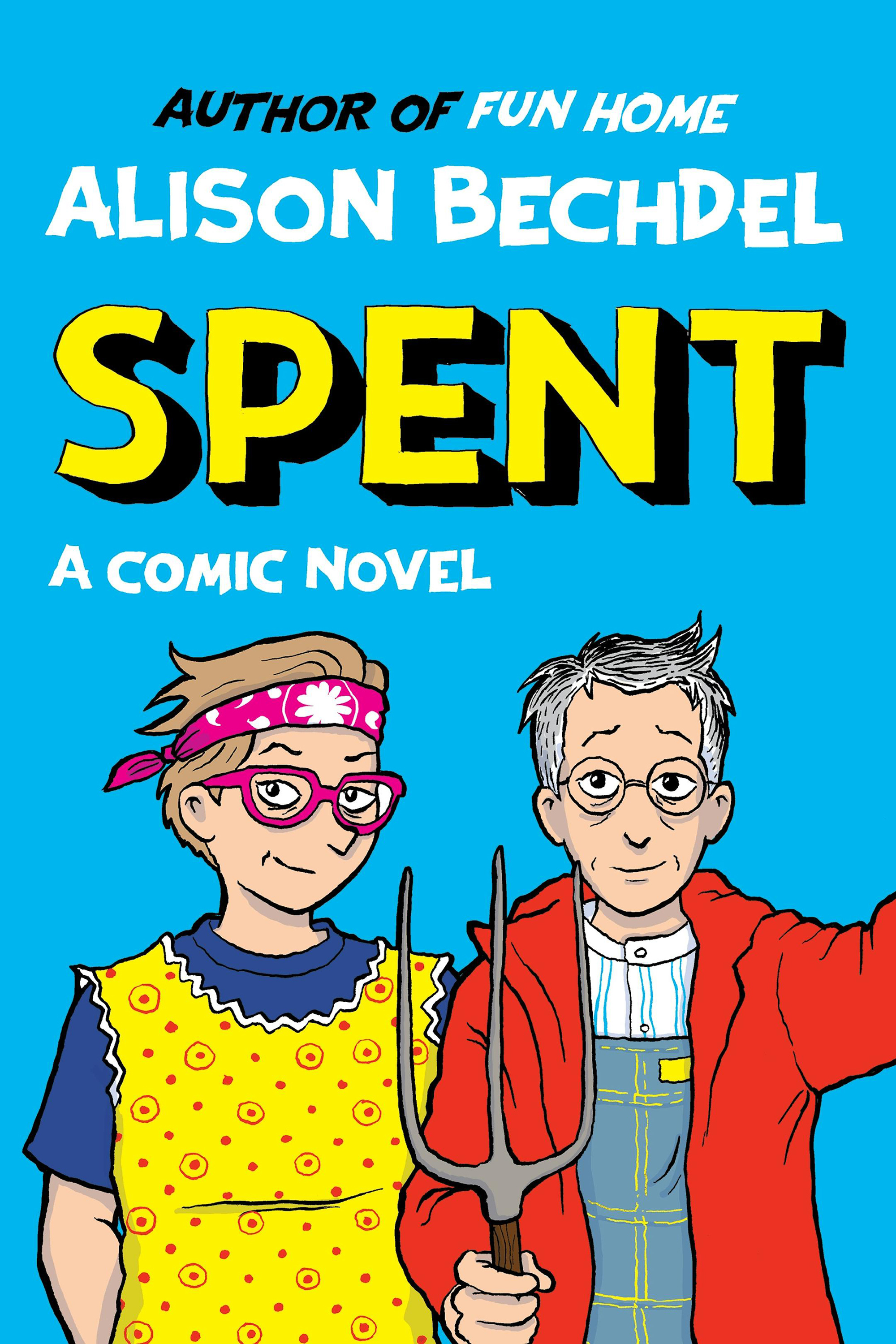Review: Alison Bechdel Explores Her Minneapolis Roots in 'Spent'

In "Spent," the main character resembles Alison Bechdel and sounds like her too, albeit with more of a bleating than a quacking voice; however, the subtitle "A Comic Novel" indicates that she is not actually Alison Bechdel herself.
The author and cartoonist has penned three graphic memoirs, one being the pioneering work "Fun Home." However, "Spent" takes a distinct direction. This piece revives figures from the comic strip "Dykes to Watch Out For," created by Bechdel during her time in Minneapolis around the beginning of the 1980s. These characters have since settled into what resembles a communal lifestyle in Vermont where they befriend a cartoonist called Alison Bechdel and her spouse, Holly Rae Taylor, who manage a sanctuary for pygmy goats.
Bechdel and Taylor indeed reside in Vermont; they are actual individuals. However, the goats mentioned are fictional elements. I had to overlook some mild irritation stemming from the ambiguous nature of reality versus fiction within the narrative, mainly since a significant portion of the book involves Alison criticizing the television adaptation of her earlier memoir about her father’s taxidermy business ("Fun Home" focuses on her father's funeral parlor and has been adapted into a Tony Award-winning musical , not a television show).
Could these criticisms imply that Bechdel dislikes the "Fun Home" musical, despite her previous praise for it? Likely not, but it becomes difficult to discern with certainty when you're looking at a character that closely resembles Bechdel herself and raises such concerns. Additionally, it seems somewhat unbecoming for an individual who was awarded a prestigious $625,000 MacArthur "genius" grant ten years prior to devote significant portions of the book to complaining about financial matters.
Those who aren't as fond of the "Fun Home" musical may find it simpler to overlook these aspects. Bechdel aims to make us at ease in a setting that seems authentic, despite not being entirely realistic, allowing her to express her worries regarding participation in a capitalist system, engaging with impersonal corporations, and her sister authoring a memoir that conflicts with her own narrative (maintaining consistency here: Bechdel doesn't actually have a sister).
The ease comes from "Spent" being both hilarious and highly self-deprecating. Bechdel pens witty observations about her own contradictions along with the amusing blunders committed by her "Spent" companions as they attempt to achieve online fame, experiment with non-monogamy, and navigate interactions with Hollywood bigwigs who fail to grasp their worldviews. Nearly every page in "Spent" offers an element of charm and humor, and I found myself bursting into laughter particularly when encountering an illustration depicting Alison tending to her lawn wearing Bermuda shorts and clogs, simultaneously pushing a baby lawnmower while carrying a miniature goat in aBabyBjörn across her chest.
You don't need to delve as deep into meat alternatives and ethical intimacy products like the characters in "Spent" do to connect with them. Despite making errors and facing setbacks, these characters are likable due to their genuine efforts to act virtuously and build a supportive environment that ensures safety for everyone.
In conclusion, by the end, even this skeptical reader understood that whether "Spent" is considered a novel or somewhat autobiographical is irrelevant. Whether fictional or based on true events, the characters encounter issues that are undeniably genuine.
____
Spent
By: Alison Bechdel.
Publisher: Mariner, 259 pages.
©2025 The Minnesota Star Tribune. Visit at startribune.com. Distributed by Tribune Content Agency, LLC.